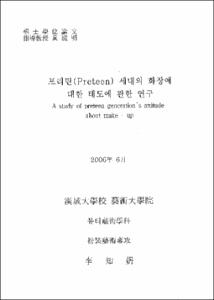호텔주방조직의 고용형태에 따른 공정성이 직무만족과 조직몰입에 미치는 영향
= The Influence of Fairness resulting from the Form of Employment in Hotel Kitchens on Job Satisfaction and Organizational Commitment
- Files in This Item:
-
-
Download
 000000108224.pdf
기타 데이터 / 2.83 MB / Adobe PDF
000000108224.pdf
기타 데이터 / 2.83 MB / Adobe PDF
-
Items in Repository are protected by copyright, with all rights reserved, unless otherwise indicated.